Need a Speaker?
Looking for a Speaker?
I am now booking live in person events and Zoom events through early 2026. I speak on topics such as family patterns, ancestral healing, military research (WWI - WWII), and genealogy. I am available for half or full-day military research seminars.
Email me at [email protected] to discuss possibilities, fees, and availability.
Explore Upcoming Speaking Engagements
Why Was Grandma So Mean?
This program isn't just about mean grandmas.
There are always more than two sides to every family story. Do you ever wonder what influenced the beliefs, behaviors, patterns, & emotions of our ancestors? Curious about why your ancestors made life choices that are 'out of character' for who you believed them to be? Using genealogical and military records with new tools & questions, I will help you understand who your ancestors were & what shaped their behaviors. We will also explore how their unhealed trauma, family patterns and behaviors were passed down through the generations. Being aware of how their unhealed past may be affecting how you live your life allows you the choice to end old cycles, heal, and create the life you desire. You may also find a new understanding of who your parents are, and your ancestors really were.

Circle of Influence
Using Genealogy & FAN to Identify Family Patterns and Trauma
Part 1 of the Circle of Influence Series.
We've heard of the FAN concept in genealogy - Friends, Associates, and Neighbors - as a way to locate genealogical records to prove the "John Smith" in the records is or is not your John Smith. Have you ever considered using this concept another way to help you identify why an ancestor was the way they were or carried certain patterns?
Using case studies, in this new program we will explore the FAN concept with an added F for FAMILY and create the web of who was involved in an ancestor's life or even your own, that influence who you became, the beliefs, behaviors and patterns lived and possibly any traumas that may have been passed down.

The Ripple Effect
Mapping the Intersections of Family, Trauma, War, and Patterns.
Part 2 of the Circle of Influence Series.
This program will help you use the Circle of Influence in a different way as we explore the impacts of war on our service members, civilians, and children of war. The material will pave the way for you to understand your family better, create new research paths and ask better questions so you can write better stories. You may walk away with big ah-ha moments about who your family members really were!
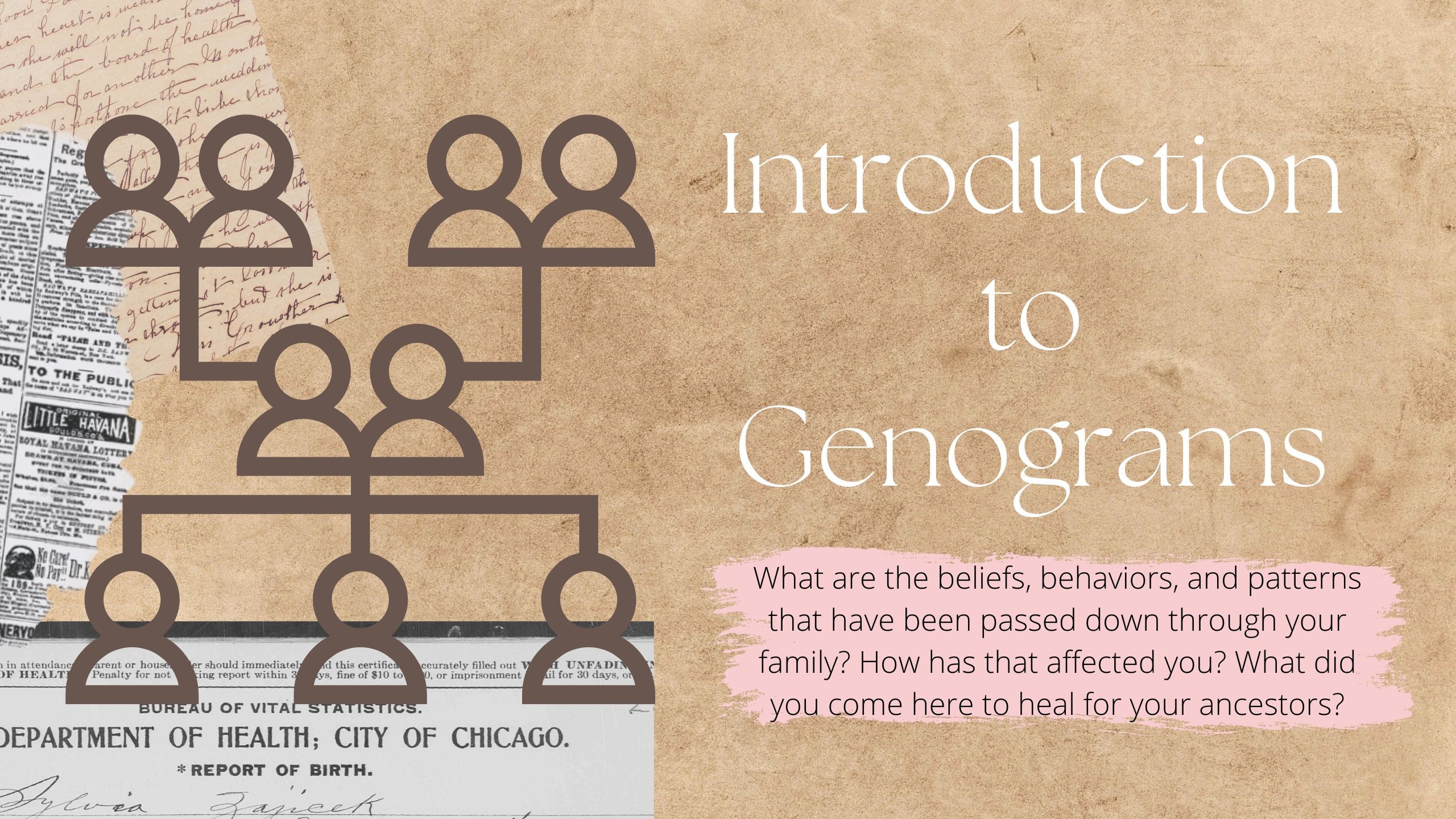
Introduction to Genograms
Are you interested in better understanding why you are who you are? Why your family and ancestors held certain beliefs, behaviors, and patterns? Using a genogram, you can learn a lot more about your family. A genogram is a tool that resembles a family tree through which we use symbols to identify family beliefs, behaviors, and patterns. There are many themes that can be explored using this tool.
In this interactive workshop, I will help you create a basic genogram, learn some basic symbols, and start to identify patterns in our families.

Words that Heal. The Power of Writing a Veteran's Story.
Discover the transformative power of stories as you embark on a journey of genealogy and military research. Stories have the ability to heal, preserve the past, and prevent history from repeating itself. Join our workshop and unlock the secrets to crafting compelling narratives that honor your family's heritage and pay tribute to the brave veterans who shaped our world.
You will learn:
- Organizing Your Research
- The Importance of Veterans' Stories
- Story Outlines and Writing Prompts.
- Unveiling the Right Questions.
- Do's and Don'ts of Writing.
- Compassion Fatigue, Grief & Self-Care In Writing.
- Project Placement.
Get ready to unleash your storytelling potential and honor your veterans through the written word.
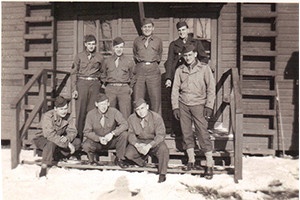
Research a Veteran
Exploring the Basics of Military Research
Please note this is part 1 of 2 in military research.
All the records DID NOT burn. Have you ever wondered what dad or grandpa did in the war? What happened to your uncle who died? What was training and combat like? How did grandpa get wounded? What happened to the family during and after the war? Answers can be found. In this session you will learn:
- Where to begin your research at home.
- What questions to ask.
- The first part of the research strategy to learn any veteran's story from any 20th century war and and military branch.
- What records you need to establish the foundation and where to locate them.
- How to create a timeline of service.
- How to begin writing the story.
I use storytelling along with the records to help you understand the deeper impacts of service. You might want a tissue for the story at the end of this session.
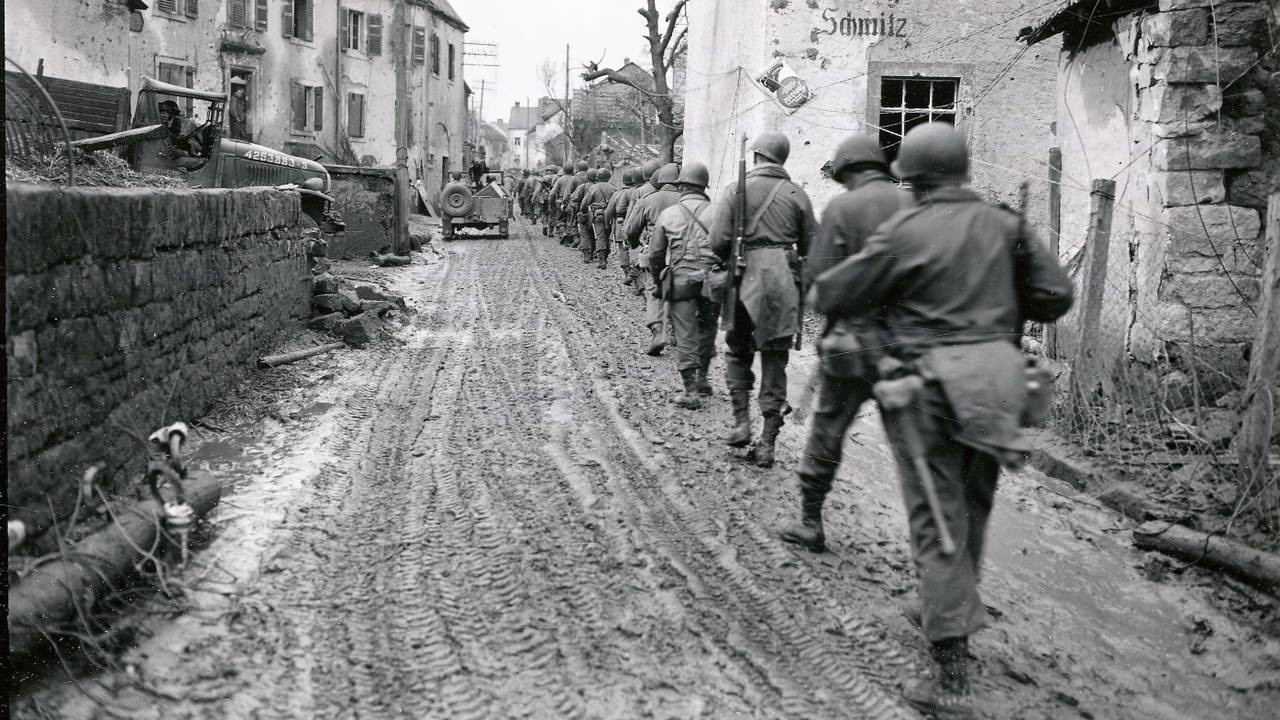
Exploring the Greatest Generation
Adding Context to the Veteran's Story
Please note this is the 2nd part of my research strategy. Research A Veteran is Part 1.
Contextual records are everywhere, not just the National Archives!
Once you have established what units your service member was in and where they served, it is time to explore unit-level records.
In this program you’ll explore:
- The second part of the research strategy to piece together your veteran's story.
- How to add to your timeline of service and expand the narrative.
- Explore various histories, journals, photos, and maps for all the military branches.
- You will learn about the most valuable foundational records to put your service member into context and write a richer story everyone will want to read.
These records help you write the narrative to your stories. They will also help you understand why your veteran was who they were after service, and probably bring up more questions for you to consider.
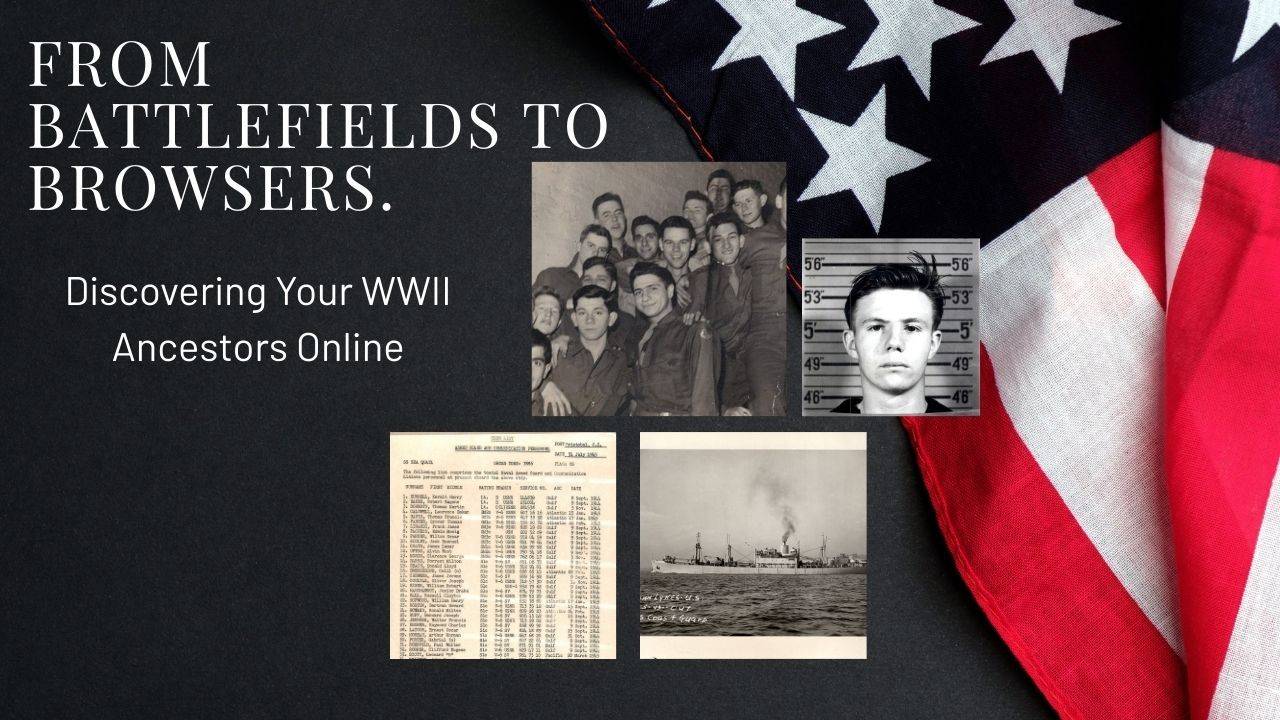
From Battlefield to Browser
One place many people begin research for their World War II service member is online. While most of the records you need to reconstruct service history are not available online, you can find clues and unit or contextual information to add to your soldier’s story. Tools and strategies taught in this course will apply to WWI, WWII, Korea, and Vietnam military research.
In this program, Jennifer will:
- A brief explanation of my two-part military research strategy.
- Online walk through of the ‘Big 4’ – Ancestry, FamilySearch, Fold3, and NARA Catalog and additional sites.
- Military Service Questionnaire and 15-page Program workbook.
- Access to a BONUS program, Exploring the Online Battlefield, that provides some different information, websites and walk-throughs of some of the sites and records. You won't want to miss this.
The tips you learn in this program will help you with any digitized record set.
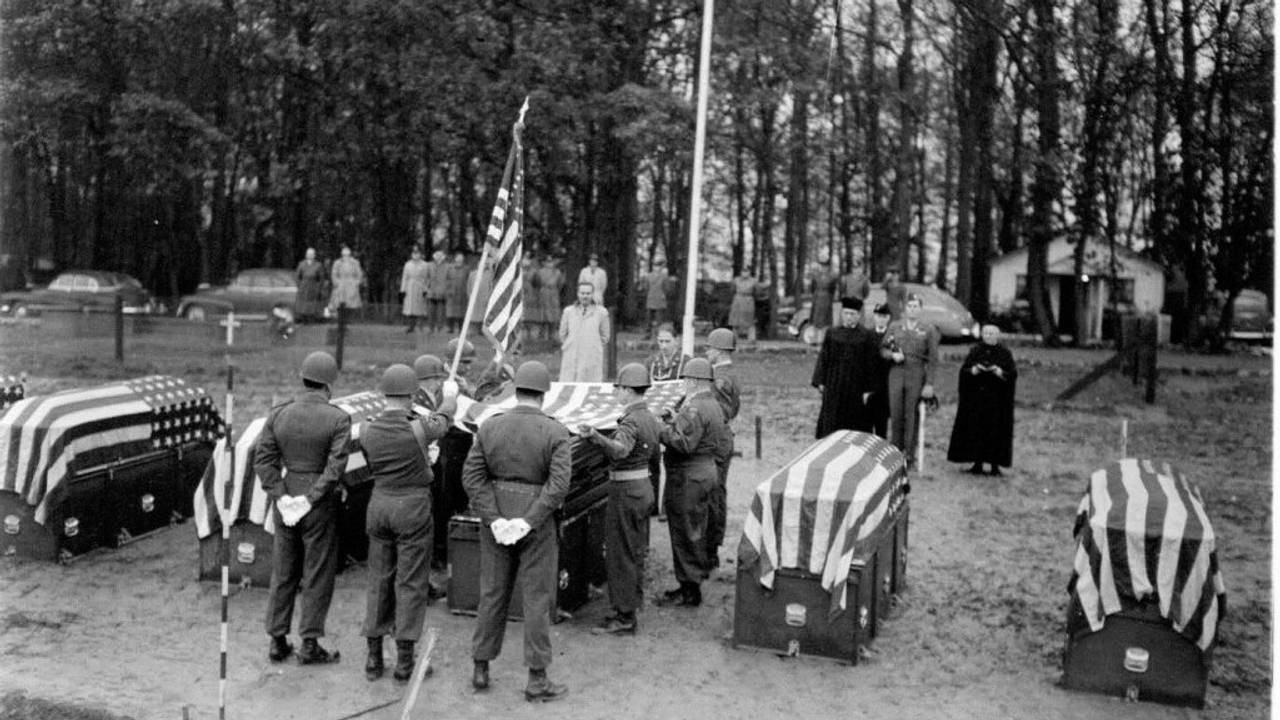
World War II Sacrifice
Records & Resources for the Prisoners, Missing, & Dead
Discover the history of the American Graves Registration Service and the records they created for our honored war dead.
In this program you’ll learn:
- What records were created by the American Grave Registration Service for World War I & World War II. How to access those records and tell your veteran's story.
- You will learn about online resources for locating information.
- We will explore POW records.
- I'll share a case study on James Privoznik who was Killed in Action 11 January 1945. Through our research, writing, and travel journey, I'll tell you his story and how I found information when most would say it is impossible.
- You will have access to some death records to peruse at your leisure.
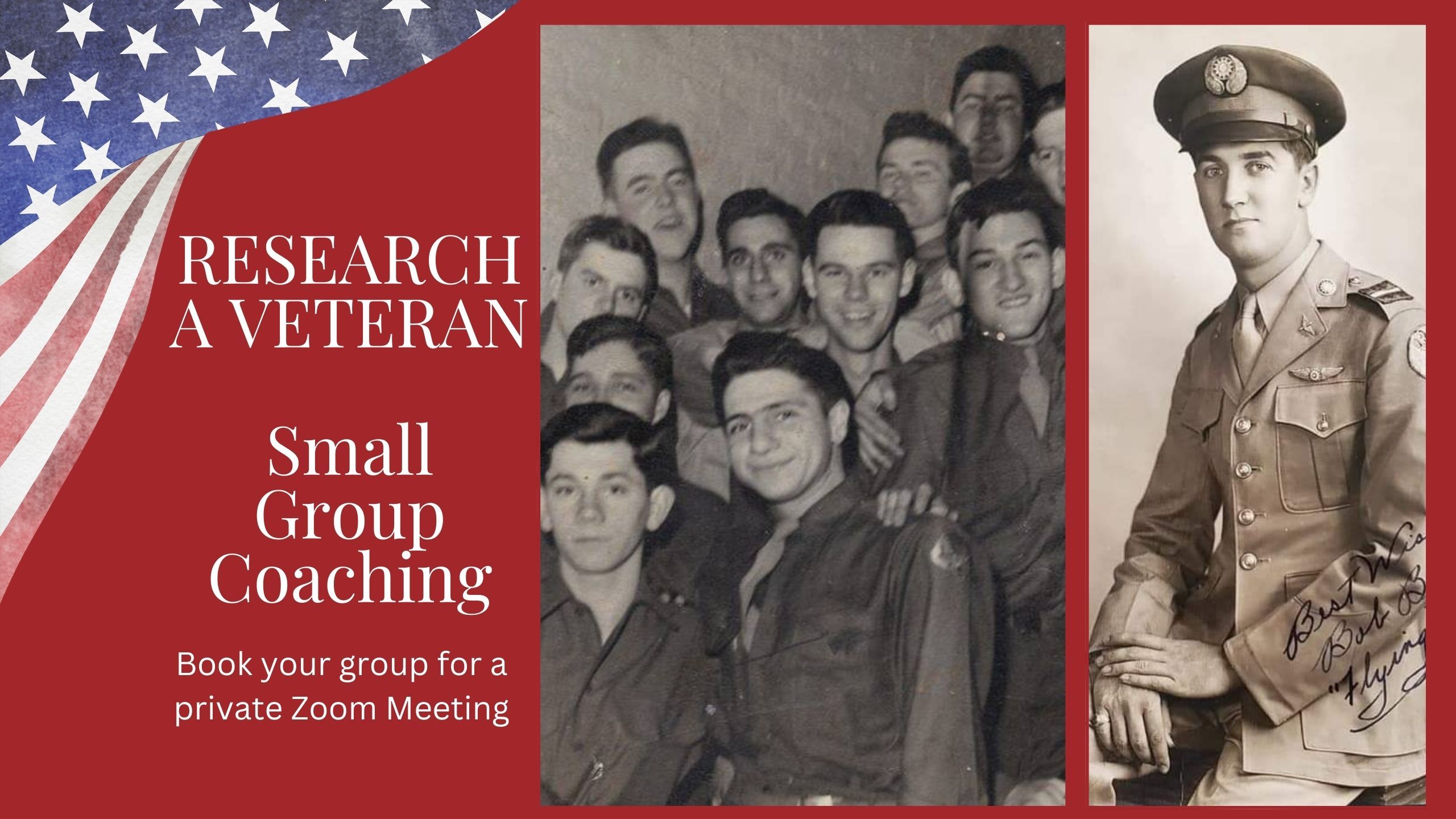
Live Small Group Coaching
Does your genealogy society or research group need specialized assistance? I now offer small group live Zoom Meeting coaching. This is great for addressing specific brick wall questions; to get specific help on sites like Fold3, NARA Catalog, FamilySearch, or Ancestry; learn about a specific military branch's records; and many other possibilities that are not served through a general webinar.
Time: 90-minute live Zoom Meeting
Fee: $15 per person. Each person registers and pays individually.
Limit of 10 people per coaching session to allow time for me to address submitted questions and show live answers.
Information required: I do require each registrant to provide specific information about their brick wall or research questions so I can prepare before the Zoom and be ready to answer questions live.
Replay will be provided to the participants to download. The replay will be available for 7 days through Dropbox.
